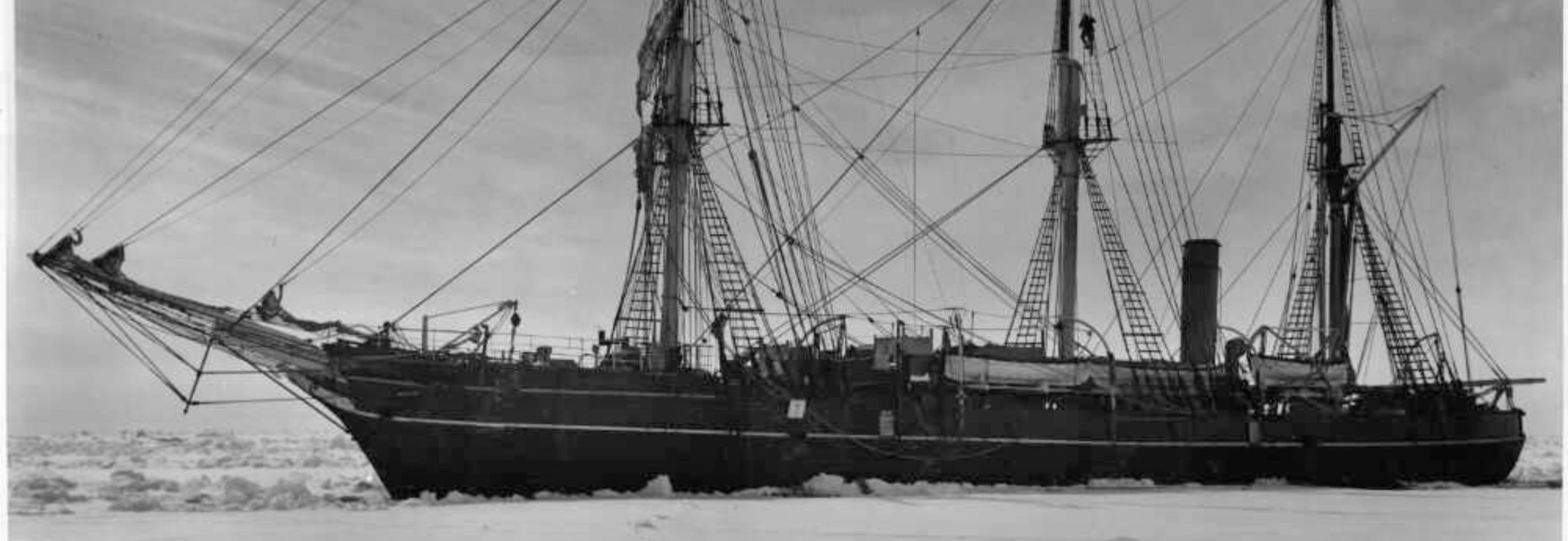

By Linda Batchelor
On 6 December 1901, the steam yacht Morning, captained by William Colbeck, left Lyttelton in New Zealand to relieve Captain Scott’s Discovery on the first British National Antarctic Expedition.
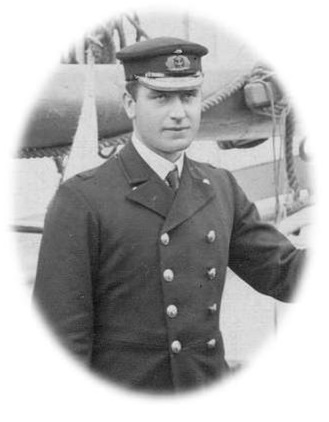
Captain Colbeck
I have recently discovered that my mother had known William Colbeck when she was a small girl, although she was unaware of his role in Antarctic exploration. Reminiscing about her childhood in the 1920s, in what was then Kent but is now part of suburban Greater London, she would tell me of visits to her cousin and of sometimes having tea with her cousin’s elderly neighbour and his housekeeper. My mother could not remember his name but described him as a retired sea captain. I was always intrigued by the story but that was all I knew at the time. Many years later, however, as a volunteer in the Bartlett Library at National Maritime Museum Cornwall, I was exploring a line of information when I was able to make the connection between my mother’s elderly sea captain and Captain William Colbeck of the Morning.
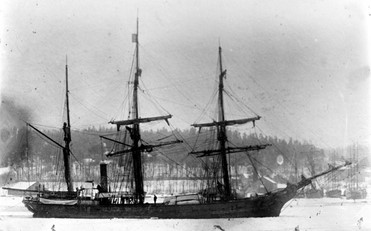
SY Morning, the relief vessel for Captain Scott’s Polar Expedition of 1901-1904. Vestfold Fylkesmuseum.
Morning was the relief support vessel for Captain Scott’s South Pole Expedition of 1901- 1904. This was Scott’s first expedition competing in the exploration of the Antarctic continent and for the discovery of the South Pole. The Antarctic was the last great unexplored continent and the competition amongst countries in the Northern hemisphere especially between Britain and Norway, was considerable.
In 1900, Carsten Borchgrevint, the Norwegian/British explorer, had taken the Southern Cross Expedition as far south as 78o 50I South. Borchgrevint was accompanied by a group of both Norwegian and British explorers including William Colbeck who had been recruited as the expedition’s magnetic observer.
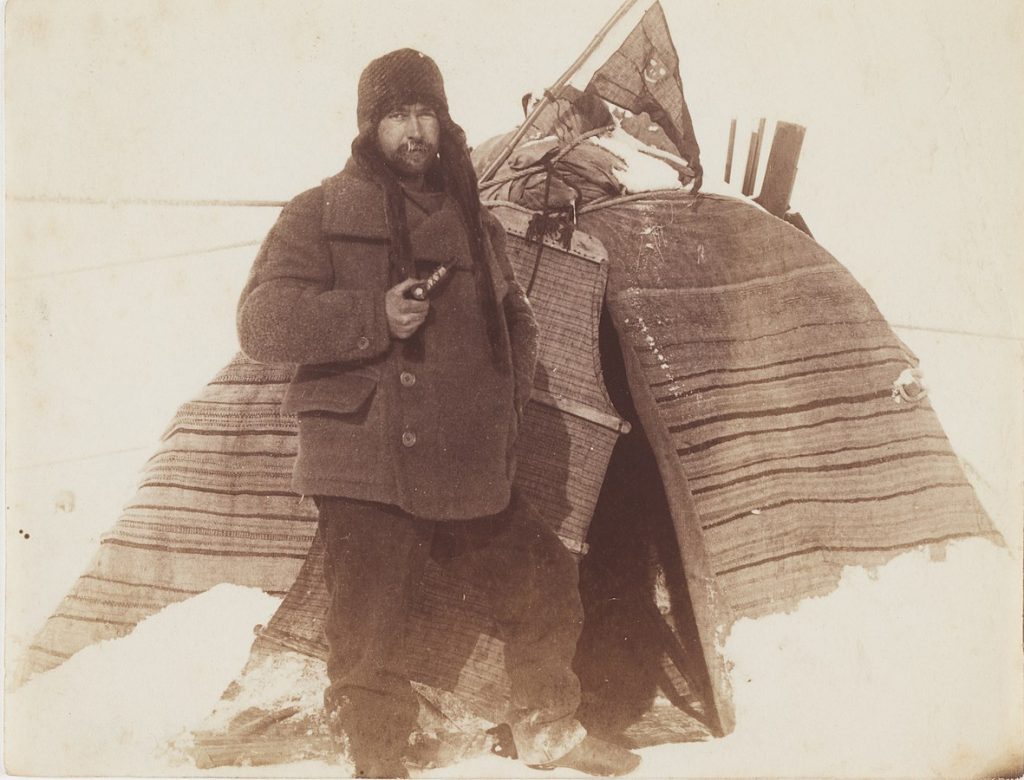
William Colbeck in Antarctica with the Southern Cross Expedition.
State Library of New South Wales.
Sir Clements Markham, President of the Royal Geographical Society, championed a scheme with the Royal Society to build on the work of the Southern Cross Expedition by launching an official British attempt to discover the Pole. As a result, he approached Captain Robert Falcon Scott of the Royal Navy to lead the British National South Pole Expedition in 1901. The original idea was that the expedition would be solely a Royal Navy enterprise but the control and the brief were extended beyond the Admiralty and the teams recruited were drawn from the Royal Navy, the Merchant Marine and the civilian and scientific communities.
The vessel SY Discovery, commanded by Captain Scott of the Royal Navy, was built in Dundee especially for the expedition as a three-masted wooden sailing ship with an auxiliary engine. Morning was purchased as the relief support vessel for the expedition. Originally built in Norway in 1871 as the whaling ship Morgenen, she was purchased in 1901 for £3,880, refitted in England as a steam yacht and renamed SY Morning. The ship then came under the command of Captain Colbeck with his expertise as a Master Mariner, a commission in the Royal Navy Reserve and his previous Antarctic experience.
William Colbeck had a long career in the merchant service. He was born in Hull in 1871 and, after being educated at Hull Grammar School, served a maritime apprenticeship specialising in navigation from 1886 to 1890 on the Loch Torridon. He qualified for his Master’s Certificate in 1894, joining the Wilson Line of Hull and taking a further Master’s qualification in 1897. He was granted a Royal Navy Reserve Commission the following year after studying as a magnetic observer at Kew and being invited join the Southern Cross Expedition to the Antarctic. He became known for the quality of his work as a magnetic observer and for his contribution to the expedition which led to his appointment as captain of the Morning.
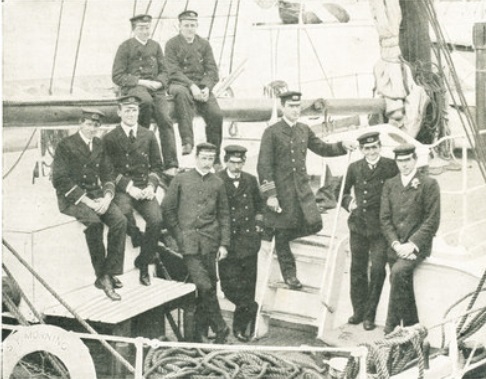
Captain Colbeck (standing in the middle on the steps) and some of the officers of Morning before sailing from London 1902.
Dundee Heritage Trust.
SY Morning sailed from London on 2 July 1902 as the relief ship of the Polar Expedition bound for New Zealand via Maderia and arrived at Lyttleton on 16 November before proceeding to the Antarctic. The crew consisted of the captain and eight other officers, a doctor and two midshipmen with eight petty officers, nine seamen and three firemen and the ship’s cat.
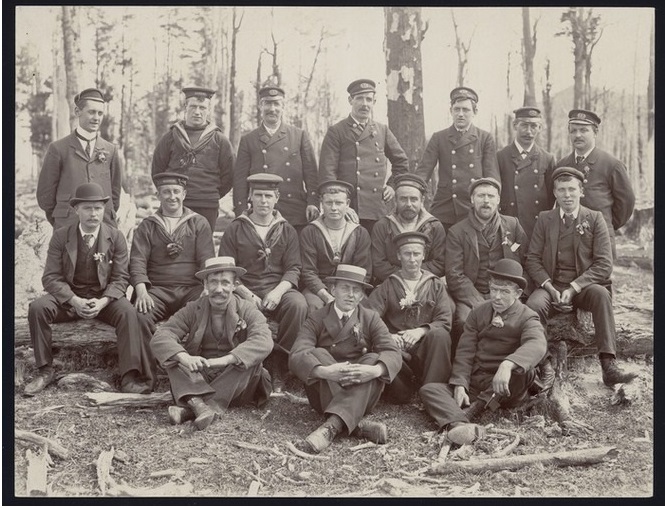
The crew of SY Morning on a picnic at Otarama, New Zealand in 1902. National Library of New Zealand.
By this time, Scott and his Discovery crew, including Third Lieutenant Ernest Shackleton, had established a base for the winter at McMurdo Sound, Ross Island. Several exploration and scientific projects were set up to provide more information about the Antarctic continent. One such project was to explore the ice further towards the South Pole. Supply depots were established on a route for a core party to use in a sledging trek across the ice. This core party consisted of Scott, Edward Wilson the expedition doctor, and Shackleton.
Unfortunately, during the trek, Wilson began to develop snow blindness and Shackleton began to suffer scurvy. They were forced to turn back 460 miles from the Pole on 31 December and return to Discovery now entombed by the ice.
Meanwhile, Morning had left New Zealand on its relief voyage to Discovery encountering fierce and deteriorating weather conditions on the way. On Christmas Day the crew sighted two uncharted islands. They landed and claimed the islands for Britain and named them Scott Island and Haggitt’s Pillar. They sailed on calling at pre-arranged mail depositories and found messages which enabled them to locate Discovery at their winter quarters at Cape Crozier sighting them at midnight on 28 January.
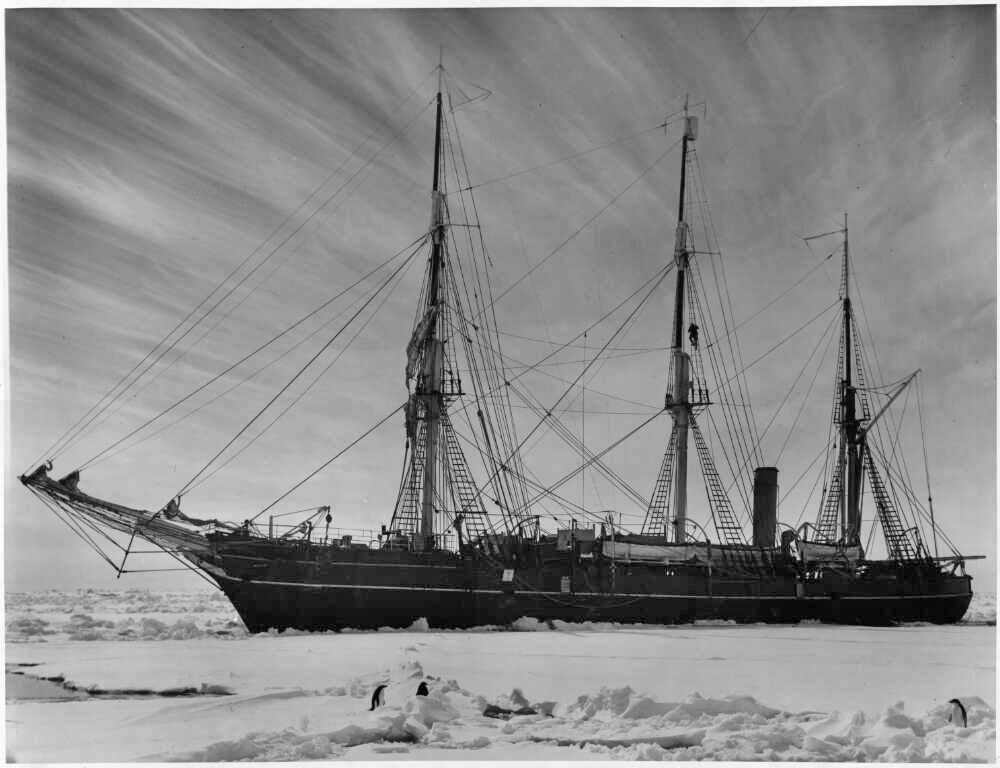
Discovery in the Antarctic Pack Ice. Cool Antarctica.
Stores and equipment were transported across the ice from Morning to re-supply Discovery. Captain Colbeck took with him a confidential letter for Captain Scott informing him that his expedition could have another year in Antarctica. The crews of the two ships co-operated in tasks and remained in close contact until Morning left on 1 March 1903, taking Shackleton and eight crewmen from Discovery with them on the return voyage to New Zealand.
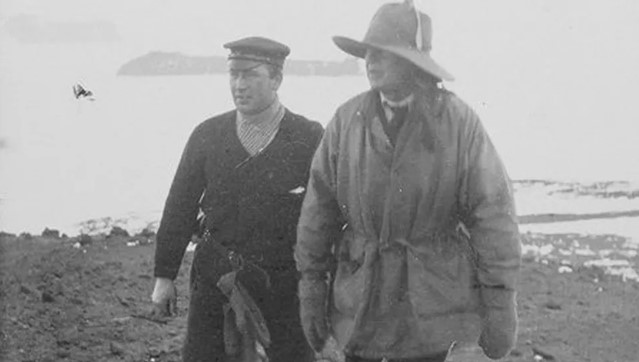
Captain Colbeck and Captain Scott during the relief mission.
Maritime Historical Studies Centre.
Captain Colbeck and the crew of the Morning returned to the still ice-bound Discovery in 1904, accompanied by a second relief ship Terra Nova with Henry McKay, an explosives expert. The two ships reached within eighteen miles of Discovery before the ice closed in and it took seven weeks to break through to their destination. Colbeck and McKay and the crews then began the task of trying to free the expedition ship but this proved to be almost impossible and a deadline had been set by the Admiralty by which Discovery would have to be abandoned to her fate with the evacuation of her crew. However, with an immense effort on the part of Colbeck and the relief crews and the use of explosives, a path was opened up in the ice which allowed Discovery to escape into open water. All three ships then left the Antarctic and were able to make the voyage home.
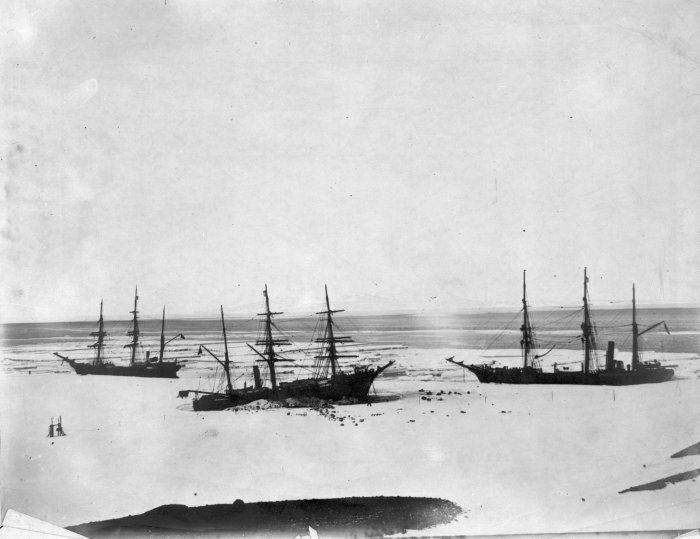
Morning, Terra Nova and Discovery before leaving the Antarctic. Dundee Heritage Trust.
Discovery, accompanied by Morning, returned to London to be met with widespread and enthusiastic support from many quarters but especially from the public. When Colbeck returned on a visit to Hull, he was the subject of immense municipal celebration. For his part in the Polar Expedition, Captain Colbeck was awarded the Polar Medal and Cape Colbeck and Colbeck Bay on the King Edward VII Peninsula in the Antarctic were named for him.
On his return to England, Captain Colbeck resumed his post with the Wilson Line and returned to employment in the Merchant Marine. In 1914 he took up the position of Marine Superintendent of the United Shipping Company of London and lived in suburban Kent until his death in 1930. This is how he became to the very small girl who became my mother ‘the elderly ship’s captain’. I am glad I was able to put that distant memory into context and discover more about Captain William Colbeck who was described in his obituary as ‘perhaps one of the highest authorities on Antarctic navigation and exploration.’
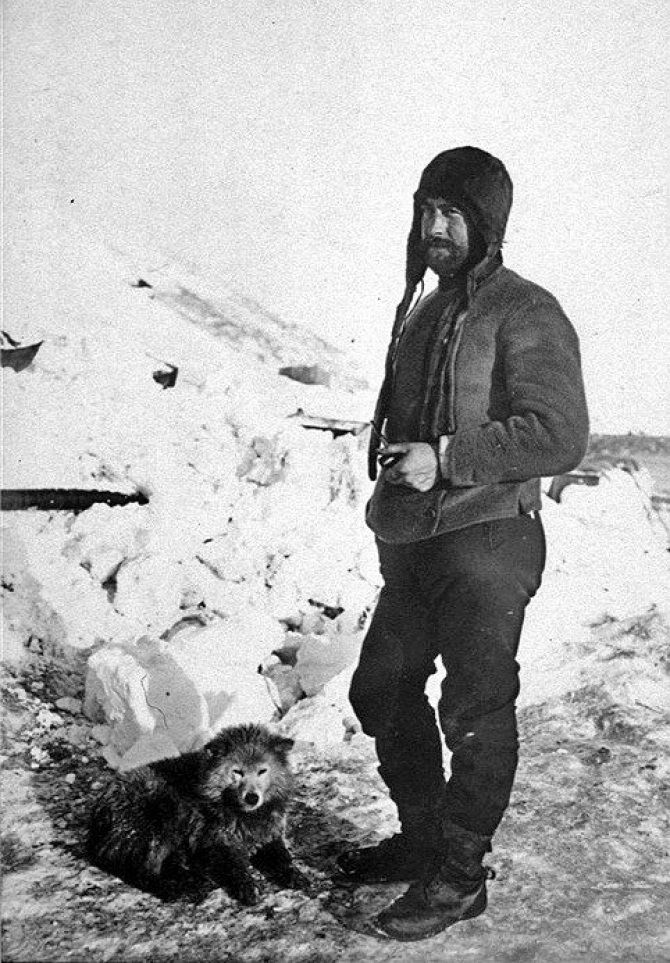
William Colbeck in the Antarctic on the Southern Cross Expedition.
SY Morning foundered in December 1915 but the redesignated RSS Discovery has been returned to her original home and is now preserved in a specially built dock at Discovery Point in Dundee.
The ‘Songs of the Morning’ were written during the vessel’s relief voyages with words by John Morrison, the Chief Engineer and music by Gerald Doorley, Third Officer. They were published in 1943 in Melbourne and a recording of the Songs and Poems was made in 2002 with proceeds going to the Dundee Heritage Trust and the New Zealand Antarctic Heritage Trust.
Photographs, documents and items from the expedition and the voyages of Morning are in of a variety of collections from which some of the photographs in this blog are sourced. They include the Antarctic Heritage Trust, the Dundee Heritage Trust, the Maritime Historical Studies Centre, the National Library of New Zealand, Royal Museums Greenwich, the Scott Polar Research Institute. Some items from Captain Colbeck’s own Collection, such as his skis, are on display at Horniman’s Museum in South London.
In 2023 an album of photographs was discovered in the archives of Leeds Central Library. Taken by John Donaldson, the Chief Engineer of Morning they were a record of many aspects of the relief voyages. The album was authenticated and featured in an episode of the BBC’s Antiques Roadshow on 1st October 2023 and is now on display at the Library.
Although there was great interest and enthusiasm for the achievements of the first polar expeditions the early explorers did not attract the continuing focus of public attention and their contributions were somewhat eclipsed by later expeditions and world developments. Today, however, there is a growing interest in all matters concerning the Antarctic and this has led to a reassessment of the early exploration. Captain Colbeck and the voyages of the Morning are receiving greater attention and the contribution they made to polar exploration are now being recognised more fully.
The Bartlett Blog is written and produced by the volunteers who staff The Bartlett Maritime Research Centre and Library of National Maritime Museum Cornwall. This blog post was written by Linda Batchelor, a Bartlett Library volunteer.
The Bartlett Maritime Research Centre & Library holds a Collection of over 20,000 volumes and offers access to one of the finest collections of maritime reference books, periodicals and archival material. The Bartlett Blog reflects the diversity of material available in The Bartlett Library.

National Maritime
Museum Cornwall Trust
Discovery Quay
Falmouth Cornwall
TR11 3QY
View Map
See our opening hours
Tel: +44(0)1326 313388
Email: enquiries@nmmc.co.uk